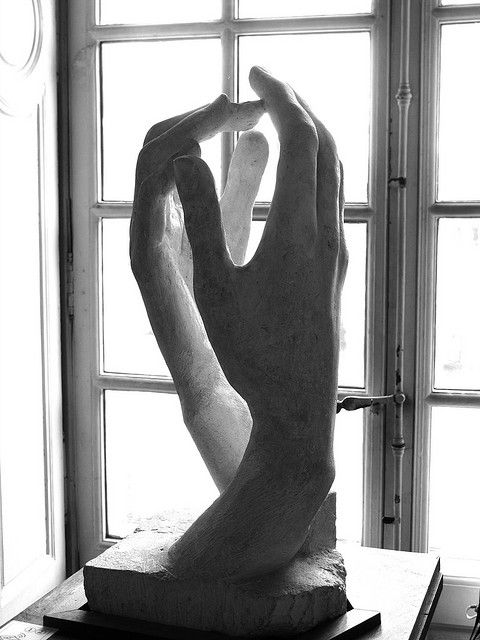Dear Integral Meditators,
We all have complex challenges in our lives these days, how can meditation help you deal better with that? The article below offers one answer!
It’s Wesak day today, so wishing you all a happy Buddha’s enlightenment/birthday day today! I’ll be doing a Wesak Day meditation tonight and tomorrow evening, those in Singapore most welcome to come along!
Most of the meditation activities for June are up, just scroll down beneath the article to have a look…
In the spirit of mindful simplicity,
Toby
 Meditation – Centering around simplicity (to thrive on complexity)
Meditation – Centering around simplicity (to thrive on complexity)
Last night I was by myself in my apartment. It has been a busy month, and there are quite a number of ongoing projects that are quite complex and uncertain for me right now. If I had not been a meditator, then my mind may have latched onto any of these complex uncertainties, and started thinking them over. I may have experienced anxiety, doubts or worries, mixed in probably with some excitement and positivity. As it was I chose to let go of all the complexity for a while and just sit quietly, tuning into the solidity of my body, and allow my state of mind to become very simply and uncomplicated. The period of simplicity was refreshing. It allowed me to ‘catch up’ with any unprocessed emotions that were floating around, and enabled me to return to my thinking a while later with a sense of purpose and clarity.
This pattern of movement, from a complex state of mind to a simple, centered one is what distinguishes a meditator from a non-meditator, and it also illustrates much of the value that meditation offers.
Moving from complexity to complexity
For many of us the pattern of our consciousness is to move from one complex state to another. After we wake up we start thinking about work, or we have to get the kids ready for school. On the way to work or school we might start thinking about our romantic relationship, or lack of one, or the problem with the colleague we have at work. After sitting down at our desk we spend a while deliberating whether our work is the ‘right’ work for us? Are we wasting our life? From there we go into the practical challenges of the day….and so it goes on. Our mind moves from one state of complexity to another, to another. All of the complexity, and the associated emotions start to mix in with each other, and we feel almost perpetually anxious. Things feel out of control, unresolved. We solve one problem only for two more to take its place. Our ‘feeling’ that life is complex and/or out of control bleeds into all of our tasks, making us less effective at all of them.
Moving from complexity to simplicity, to complexity
For a meditator, the fundamental pattern of their consciousness changes. Like all of us, a meditator has complex life problems which s/he has to deal with. However, instead of moving from one complex problem to another, a meditator regularly returns their attention to a state of simplicity and non-complexity. So, for example I might go from thinking about the complex problem of ‘rasing my child right’ to a short period where my mind is simply focused on the pleasant feeling of relaxation in my body. From that state of simplicity, I might then think about the content of my next article, and write it. Then back to a state of simple body awareness. From there I might go onto an emotionally sensitive conversation with my neighbour about the volume of their music at night, then back to simplicity, and so it goes on…
A win-win between simplicity and complexity
One of the ideas with meditation is that, by returning regularly to a state of simplicity, your ability to deal effectively with complex problems improves. By returning to simplicity, you can deal with one complex problem separately from the others, rather than have emotions from your work life negatively influencing your personal life, and vice versa. Regularly returning to simplicity gives you a stable center from which you can meet the challenges of your life without feeling so intimidated and off balance.
You don’t have to wait until you sit down quietly to do some formal meditation, you can choose to cultivate a state of simplicity at any time. For example, while you have your morning coffee break, simply choose to come back to your body and the taste of the coffee. Become regularly simple to return to the complexity of your life with appetite and enthusiasm!
Related article: The benefits of simplicity
© Toby Ouvry 2018, you are welcome to use or share this article, but please cite Toby as the source and include reference to his website www.tobyouvry.com
Upcoming Courses at Integral Meditation Asia
Ongoing on Wednesday’s, 7.30-8.30pm – Wednesday Meditation Classes at Basic Essence with Toby
Ongoing on Tuesday evenings, 7.30-8.30pm – Tuesday Meditation Classes at One Heart with Toby (East coast)
Saturday 26th May 10am-4.30pm – Mastering your Mind Through Mindfulness Meditation Day Retreat with Toby
Tuesday 29, Wednesday 30th May – Wesak Meditation
Saturday, 9th June, 9.30am-1pm – Meditations for Transforming Negativity and Stress into Energy, Positivity and Enlightenment
Saturday 16th June, 10-11.30am – Get Your Meditation Practice Started Now – The Shortest and Most Time Effective Meditation Workshop Ever
Saturday 23rd June, 10am-4.30pm – An Introduction to Meditation from the Perspective of Shamanism
Integral Meditation Asia
Online Courses * 1:1 Coaching * Books * Live Workshops * Corporate Mindfulness Training *Life-Coaching * Meditation Technology



